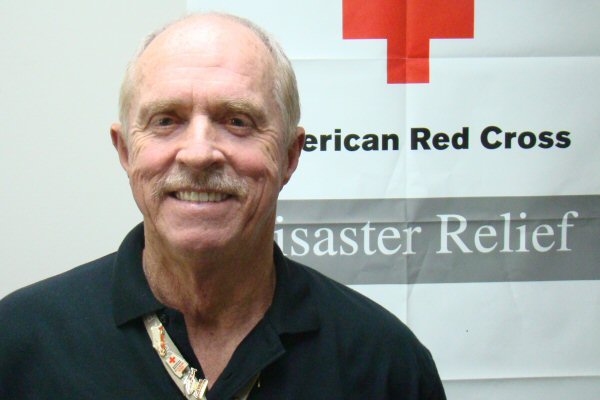East Tennessee man aids Red Cross efforts at Texas plant explosion
He’s seen the devastation of hurricanes in Florida, flooding in Illinois and countless tornadoes across the Southeast, but none of those disasters could prepare John Manners, a Tellico Village resident, for what he’d encounter in the aftermath of the West, Texas plant explosion.
“It’s kind of like all the movies you ever saw as a kid. You see a bomb go off and it levels everything. That’s exactly what it looked like.”
John and his wife Kathleen began volunteering for the American Red Cross in 2002. Their training as Emergency Medical Technicians made them a perfect fit for the Disaster Action Team, responding to several incidents across the country over the past decade.
“We not only got to travel together, we worked together,” John said. “It’s something unique to be able to share that with a spouse.”
However, John would have to fly solo on his most recent assignment – a fertilizer plant explosion in Texas that rocked the small town of West, killing 15 people and injuring more than 150.
“I saw it on the news that evening. The next morning I got a phone call and that afternoon I was on a flight to Dallas.” From the moment he arrived in the town of less than 3,000, the destruction was evident. “It was just such a large area. Several blocks were just leveled, just nothing standing. Makes quite an impression on you.” Through his experience assisting at previous disaster sites, John has seen a variety of injuries, but nothing quite like the wounds residents of West sustained.
“We saw a lot of unusual injuries there that were more like war zone injuries than what you’d see at a hurricane or something. A lot of small glass embedded in skin. A lot of people with ringing in their ears and red runny eyes.”
But perhaps what made the biggest impression on John weren’t the physical injuries, but rather, the emotional trauma. “Because of it being a small town, everybody was related to somebody that was either injured or had been killed in the explosion,” he notes. “The psychological aspect of it – people really needed to talk to somebody and that’s a major part of our job with the Red Cross. I was able to help people just by listening to what happened to them.”
It’s the gratification of knowing he’s made a positive impact on someone’s life that allows John to continue to respond to disasters. It’s that same gratification he uses to encourage others to join the cause and volunteer for the American Red Cross.
“We all have something to offer. This is just kind of giving back and offering people a leg up when they need help. We all need help once in a while.”










